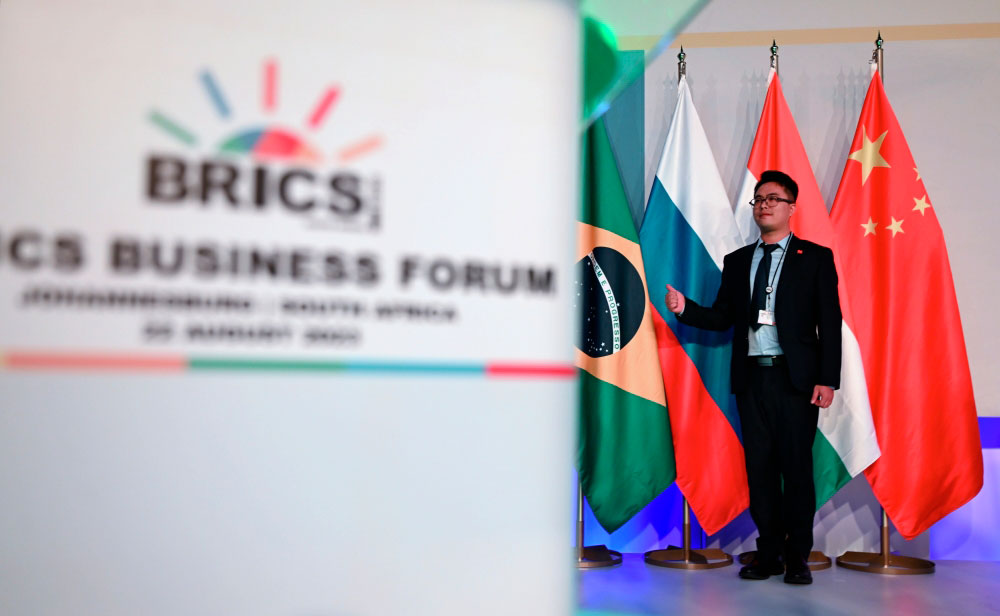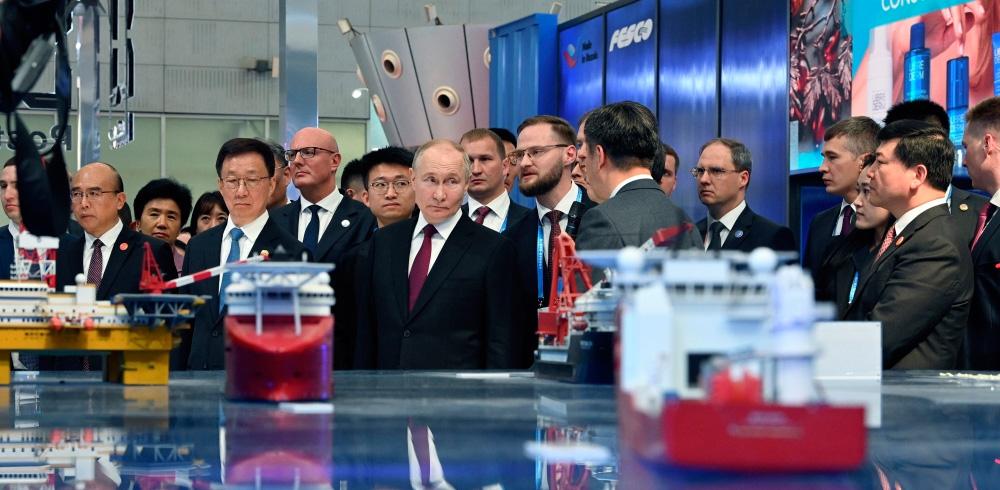In early June 2024, Turkish Foreign Minister Hakan Fidan made waves when he said that Ankara saw BRICS as a possible alternative to the European Union and was exploring opportunities to join the grouping. This message was conveyed in different words first in China, where Fidan traveled first, and then in Moscow and Nizhny Novgorod on the sidelines of the BRICS Council of Foreign Ministers. And although Russian Foreign Minister Sergey Lavrov has already publicly announced that the group’s members overwhelmingly decided to take a break in the “admission campaign,” there is ongoing debate about the prospects of not only Turkey but also other countries joining this club.
No other statement has probably been discussed so widely both by experts and the public as that of Turkey. Yet BRICS enthusiasts’ cheer was short-lived: at a joint press conference with the Estonian president, Turkish leader Recep Tayyip Erdogan said that “joining the European Union is a strategic goal” of Ankara. His word clearly has much more weight in the decision-making system than the foreign minister’s statement, but the president himself has more than once expressed interest in new formats.
From an anthropomorphic perspective, one could say that Turkey seeks to meet the basic need for association with a group of like-minded actors. That said, relations with other BRICS nations—both current and future—will develop regardless of Ankara’s membership in the group. Today, Turkey may need BRICS in such areas as finance and technology, but what Ankara can bring to the table is an open question. In his speech on July 16, Erdogan said that Turkey “is not going to turn its back on the East for the sake of the West or neglect the West for the sake of the East,” communicating a message to partners, both current and prospective. Yet so far Turkish experts and politicians do not have a clear understanding of what BRICS is—an economic community, a non-Western association or a platform for dialogue; therefore, no meaningful steps in this direction can be expected.
In early June 2024, Turkish Foreign Minister Hakan Fidan made waves when he said that Ankara saw BRICS as a possible alternative to the European Union and was exploring opportunities to join the grouping. This message was conveyed in different words first in China, where Fidan traveled first, and then in Moscow and Nizhny Novgorod on the sidelines of the BRICS Council of Foreign Ministers. And although Russian Foreign Minister Sergey Lavrov has already publicly announced that the group’s members overwhelmingly decided to take a break in the “admission campaign,” there is ongoing debate about the prospects of not only Turkey but also other countries joining this club.
No other statement has probably been discussed so widely both by experts and the public as that of Turkey. And it is only natural given that Turkey, unlike other potential members, is something almost near and dear (it would seem). Yet BRICS enthusiasts’ cheer was short-lived: at a joint press conference with the Estonian president, Turkish leader Recep Tayyip Erdogan said that “joining the European Union is a strategic goal” of Ankara. His word clearly has much more weight in the decision-making system than the foreign minister’s statement, but the president himself has more than once expressed interest in new formats.
This became especially apparent after the normalization of relations between Turkey and Russia following the 2015 crisis and the deterioration of Turkey’s ties with its strategic partners—the U.S. and the EU—after the coup attempt in 2016. These developments, as well as sanctions against Ankara following the purchase of Russian S-400 air defense systems, its exclusion from the F-35 program, and continued pressure from the West over Turkey’s refusal to join restrictions against Russia, have forced the Turkish leadership to seek support. Although the word “alternative” is often heard whenever potential relations with BRICS are described, experts recognize that it is far from a zero-sum game: the volatility of relations with European nations and the United States compels Turkey to “hedge the risks”. The less binding the terms and the more well-defined the existing rules of the game are, the more comfortable they will be for the Turkish government.
Step 1: Clearly state your request
Back in 2017, Mehmet Simsek, then-Deputy Prime Minister of Turkey and now its Minister of Finance, suggested that “Turkey could become a member of the BRICS Investment Bank”, which requires membership of the group. On the other hand, the case of Egypt demonstrates that it is possible to become a member of the New Development Bank (NDB) even before joining BRICS. Although Cairo did receive its “party ticket” in 2024.
In 2018, it was now Turkish President Erdogan himself who attended the BRICS summit in Johannesburg as chairman of the Organization of Islamic Cooperation. In his speech, he reiterated the hope that the NDB and the BRICS Business Council would soon be able to engage with relevant institutions in Turkey, and cooperation in energy would commence.
Much has changed since then both in the world economy and in the global standing of BRICS. The only thing that has remained unchanged is the challenges Turkey faces. In 2024, Ankara is taking a second shot at joining the group—seemingly more successful than the previous one. In addition to Russia, the Turkish leader secured the support of China and Brazil after meeting with President Lula da Silva on the sidelines of the Group of Seven summit in Italy this June. So what problems does Turkey seek to solve by joining the group? Putting aside lofty matters such as “geopolitical influence” and “strategic autonomy”, economic interests remain. These are what Turkish officials and experts pay attention to when analyzing the prospects of joining this format.
Step 2: Interpretation of patterns
BRICS countries are gradually increasing their share in Turkey’s total trade turnover: of the nine members, four (Russia, China, Egypt and the UAE) are among Ankara’s top 20 export partners, with two more countries—Iran and Saudi Arabia (which has not yet officially joined)—not far behind. Russia and China are also leaders in imports, while the UAE, India and Brazil rank a notch lower (accounting for around 32% of the total). In 2024, constant pressure from Washington saw trade turnover with Russia shrink rapidly, while dependence persists—mainly due to energy imports, steel and agro-industrial products. Western partners offer their own alternatives but cannot fully meet the demand, which is growing amid the rising share of industry in Turkey’s GDP (31.29% in 2022) and inflation. What is more, Western imports are much more expensive.
BRICS, with the inclusion of the UAE, Egypt, Iran and Ethiopia, has become a multidimensional association, with each of its members being of special interest to Ankara, and it is not only about imports and exports. Turkey’s relations with Egypt are just beginning to mend, and the BRICS platform could facilitate their further rapprochement. Ethiopia is a promising market for Turkish products. Exports have not yet hit the stated target of $1 billion, but Addis Ababa is already a regular buyer of Turkish military hardware: in 2024, Ethiopia purchased several Bayraktar Akıncı combat drones. Some reports suggested that Bayraktar TB-2 UAVs were used in repelling rebels’ attacks on Ethiopian government troops during the Tigray war. Turkish investments in this country are second only to those of China (over $2 billion). The United Arab Emirates not only produces energy resources but also actively invests in tourism and high technology. Once competitors, the countries have recently entered the path of peaceful coexistence, which had a positive impact on the inflow of capital to Turkey.
Attracting investment is a quite serious issue for the Turkish economy, which depends on foreign capital. Erdogan’s unpopular fiscal policy, which he had pursued until May 2023, and his refusal to join the sanctions on Russia led to a massive flight of European financing. Although the return to conventional methods of controlling inflation has seen foreign investor confidence grow slowly but surely, the current amount of FDI is not sufficient to boost the economy. EU countries have traditionally been the dominant source of foreign capital for Turkey, but as the economic axis is shifting further East, Ankara is looking to cultivate relations with new financial centers, particularly China. The results have so far been very modest: from 2013 to 2022, Beijing committed a mere 1.31% of its total investment to Turkey [1] as part of the Belt and Road Initiative. The recent agreement with China’s BYD, under which the company will allocate $1 billion for the construction of an electric car factory, is an achievement of Turkish diplomacy. Meanwhile, Turkey still hopes to participate in Chinese projects as a contractor, especially in the Mediterranean, as well as to unlock the full potential of the Trans-Caspian International Transport Route, which will require considerable financial (around $18.5 billion according to European Bank for Reconstruction and Development estimates) and technological resources, which Ankara lacks.
Step 3: Draw your conclusions
It remains to be seen in which direction BRICS will move—what countries will become its new members, what institutions will be created, and whether the infrastructure and legal framework will be evolving. But even by a stretch of imagination one can see that the benefits of joining BRICS will be very modest both for Turkey and the grouping itself.
Unlike the European Union, BRICS is not a common market and is unlikely to become one. What is certain is that the markets of the countries will become much more visible to each other, which can significantly expand Turkey’s export potential. The country’s export structure, however, may cause some concerns for other BRICS members, since it encompasses finished goods, automobiles, textile and agricultural products—the traditional niches of India and China.
A common payment systems of BRICS nations, proposed by Iran, would facilitate payments both in export–import transactions and in implementing other projects. In particular, Rosatom head Alexey Likhachev recently said that the U.S. was blocking money transactions with funds intended for the construction of the Akkuyu nuclear power plant. The state corporation plans to build a second NPP on the Black Sea coast (although the tender is still open, Turkish Energy Minister Alparslan Bayraktar said Russia was ahead in the bid). The development of existing and potential projects is under scrutiny and severe sanctions pressure, and an alternative payment system would help minimize the risks.
The remarks made by Mehmet Simsek, who was cited above, at the London Conference slipped under the radar. There, he emphasized the way relations between Ankara and Western nations are built. Trade with EU member states alone amounted to $213 billion, excluding services. The EU has invested $50.4 billion in Turkish economy. It is also important that over $37 billion was invested in Western markets ($34.5 billion in EU countries, another $3.3 billion in North America), which is 65.4% of the total accumulated investments. Turkish business is very closely linked to Europe and the U.S. historically and, judging by the continuing trend of recent years, is not yet ready to renounce these ties.
The Turkish establishment has long recognized the shift of the economic center to the East, so in 2015 it launched the Asia Anew (Yeniden Asya) initiative aimed at strengthening trade and economic relations with countries in this part of the world. Ankara hopes to unlock its transit potential by emphasizing its strategic location at the crossroads of Europe and Asia with access to Africa. However, the partners believe that Turkey’s geographic location outside the West is not so strategic after all, and even a customs union with the EU is not a major advantage for BRICS members yet. They themselves are much more interested in gaining access to European technologies than in entering the market and see Turkey as just another competitor. In addition, most logistics routes run outside Turkey, including the promising India–Middle East–Europe corridor. Erdogan himself pointed out this shortcoming, though it did not contribute to the country’s inclusion in the project.
Given that BRICS is stepping up its activities and expanding, Fidan’s statement sounded more like a fear of being left behind. From an anthropomorphic perspective, one could say that Turkey seeks to meet the basic need for association with a group of like-minded actors. That said, relations with other BRICS nations—both current and future—will develop regardless of Ankara’s membership in the group. Today, Turkey may need BRICS in such areas as finance and technology, but what Ankara can bring to the table is an open question. In his speech on July 16, Erdogan said that Turkey “is not going to turn its back on the East for the sake of the West or neglect the West for the sake of the East,” communicating a message to partners, both current and prospective. Yet so far Turkish experts and politicians do not have a clear understanding of what BRICS is—an economic community, a non-Western association or a platform for dialogue; therefore, no meaningful steps in this direction can be expected.
1. Gürek B. Kozluca M. Chinese Investment in Turkey: The Belt and Road Initiative, Rising Expectations and Ground Realities. European Review, Volume 30, Issue 6, December 2022, pp. 806 - 834







